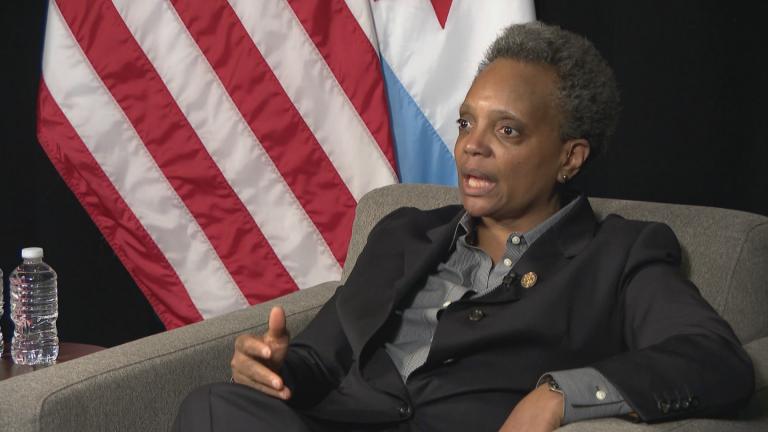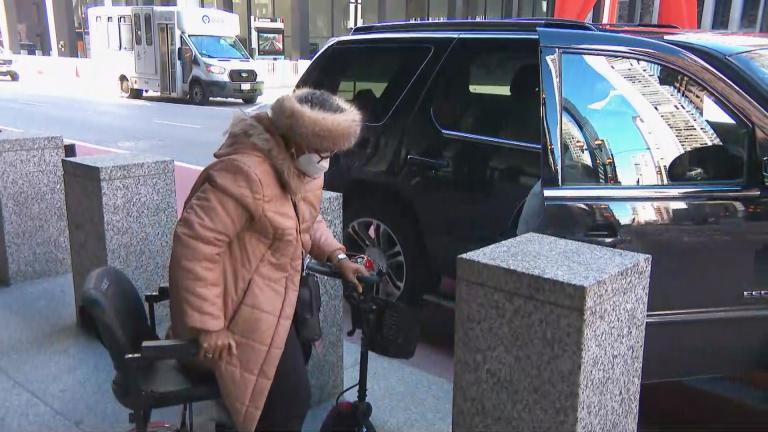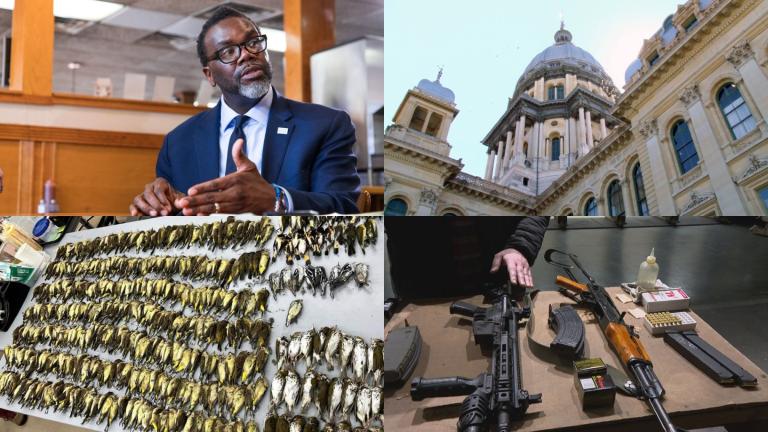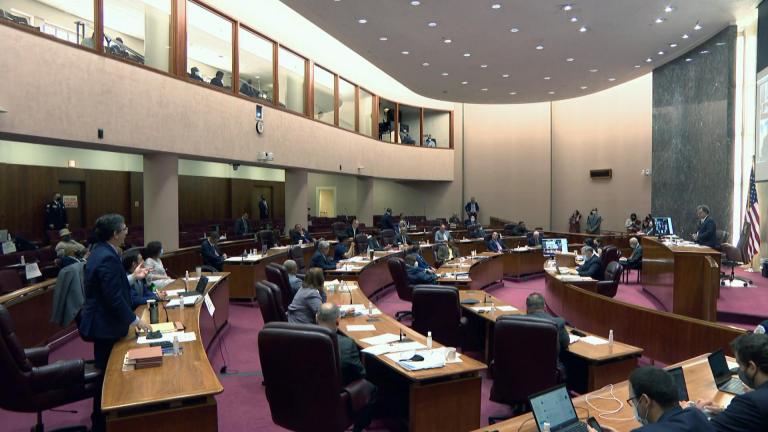Video: “Chicago Tonight” speaks with Cesáreo Moreno of the National Museum of Mexican Art and the Chicago Monuments Project advisory committee; Bonnie McDonald of Landmarks Illinois; and Ron Onesti of the Joint Civic Committee of Italian Americans and the Italian American Sports Hall of Fame. (Produced by Paul Caine)
A commission charged with reviewing Chicago’s more than 500 public monuments as part of a “a racial healing and historical reckoning project” released on Wednesday a list of 41 monuments that are problematic for a variety of reasons, officials announced.
Members of the public can weigh in on the work of the commission launched in August after intense and at times violent protests forced Mayor Lori Lightfoot to remove statues of Christopher Columbus from two Chicago parks virtually via a new website at chicagomonuments.org or at a series of small group sessions. The effort will conclude in April.
See the full list of problematic monuments.
The commission’s website does not identify why each of the monuments were flagged, although for some the reason is clear, including all of the city’s three Columbus statues.
Among the statues flagged by the commission are statues of four presidents: George Washington, Abraham Lincoln, Ulysses S. Grant and William McKinley.
Five statues of Lincoln were flagged by the commission, although the commission’s website does not identify areas of concern for any of them — or any of the other presidential statues. Two statues of Washington were flagged.
A quarter of the problematic monuments include images of Native Americans, including “Indians (The Bowman and the Spearman)” which stands at the Michigan Avenue entrance of Grant Park. The commission’s description notes that the “sculptures have been criticized for their romanticized and reductive images of American Indians.”
One-fifth of the monuments flagged by the commission are dedicated to White explorers, most frequently French missionary Jacques Marquette and the Quebec-born cartographer Louis Jolliet, who were the first Europeans to explore and document the northern portion of the Mississippi.
Some of the monuments listed as problematic have long been in storage because of objections, including a bronze sculpture of the Fort Dearborn Massacre, which the commission describes as “conceived in a sensationalist, luridly violent mode, the sculpture was long criticized by American Indian activists and was removed from public view in 1997.”
The city will accept “project ideas from individual artists and/or community groups for the development of new monuments that rethink the place, purpose and permanence of monuments in our public spaces,” through April 1. A “select number of proposals” will receive a $1,500 stipend, officials said.
Chicago has few public monuments dedicated to women or people of color.
“This project is a powerful opportunity for us to come together as a city to assess the many monuments and memorials across our neighborhoods and communities—to face our history and what and how we memorialize that history,” Mayor Lori Lightfoot said. “Given the past year and in particular the past summer that made clear history isn’t past, it is essential that residents are a part of this conversation. This project is about more than a single statue or mural, it’s about channeling our city's dynamic civic energy to permanently memorialize our shared values, history and heritage as Chicagoans in an open and democratic way."
The monuments were flagged for one or more of these reasons:
—“promoting narratives of white supremacy
— presenting inaccurate and/or demeaning characteristics of American Indians
—memorializing individuals with connections to racist acts, slavery and genocide
—presenting selective, over-simplified, one-sided views of history
—not sufficiently including other stories, in particular those of women, people of color and themes of labor, migration and community building
—creating conflict between groups of people who see value in these artworks or those who do not.”
Contact Heather Cherone: @HeatherCherone | (773) 569-1863 | [email protected]
Note: This story was originally published Feb. 17, 2021. It has been updated to include our “Chicago Tonight” discussion.








